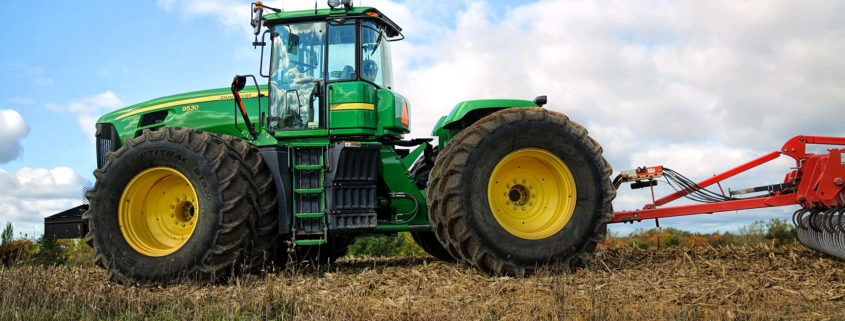When to buy or rent heavy equipment
You’ve decided it’s time you need some heavy equipment or trucks. Maybe you’ve got some big contracts coming down the pipe, you’re growing or expanding your company’s capabilities, or you just need to replace your current heavy equipment. So how do you decide when to buy equipment and trucks and when to rent what you need? Premier Business Lending has helped business owners answer these questions for years.
With pros and cons to both renting and buying, it pays to evaluate your company’s current situation and capabilities (financial and otherwise), your future, and carefully consider which method of acquiring equipment will be most advantageous to your business – and which is also simply going to make your life easier. Certainly, initial cost is a major factor in the decision process, but it’s not the only one – there are several things to consider when it’s time to gear up – usage, availability and more.
Here’s an overview of some of the things you should bear in mind before deciding when to buy and when to rent equipment.
1. Current financial situation
This seems like the most obvious factor to consider – do you currently have the capital to buy or is renting a better option for now? But you should look beyond your current situation and project your costs over several months or years. Although buying may be a larger one-time financial outlay, the cost of renting can add up quickly, and over a long period can end up costing you more – especially if the equipment isn’t being used for the entire rental period. And don’t forget: when you own, you can see a return on your investment when you sell. You can reduce the initial financial impact of buying a piece of equipment in many ways:
- Buy good quality used equipment – when you rent, you are often paying for the newest equipment with the latest technology; purchasing well-maintained used equipment can be cheaper than buying new equipment and may be more cost-effective than renting over the long term
- Finance your equipment purchase – give your company some extra financial breathing room by financing your equipment purchases and keeping your capital to run your business; with financing rates as low as 4.5%, your payments could even be lower than rental payments with Premier Business Lending.
2. Cost of Buying vs Cost of Renting
3. Length of project or job frequency
Of all the things to consider, project length or the frequency of jobs on the calendar could be the deciding factor in whether you rent or buy equipment. If it’s a short-term job, or you need a specialized piece of equipment for a one-off job, then renting may make more sense. The risk, of course, is that if the machine isn’t being used for the entire time it’s rented due to changes in the project schedule or unforeseen hold ups, then you’re spending money on a machine that’s sitting and waiting, not making you money.
- If you’re working on a long project, or if you’ve got several jobs on the horizon, then buying probably makes better sense given that rental costs add up quickly the longer a job goes on. And a multi-purpose piece of equipment (loaders, excavators, skid steers, forklifts, trucks etc.) that can be used for various projects is a great asset on any jobsite.
4. Equipment availability & usage
- The big advantage of owing your own equipment is that it’s available to you 24/7 – “if you own it, you control it”, as the saying goes. You can react to unexpected changes in projects or project schedules, take on jobs at a moment’s notice and complete projects with less downtime.
- Before you decide whether to rent or buy, you should weigh the potential risk of a rental company not having the machine you need when you need it. Owning can be a plus to potential clients too, who see it and know you’re not only equipped to take on their job, but are a going concern and a stable, trustworthy business.
5. Fleet management and inventory control
- Managing your equipment is also something to consider. If you have the skills and the time, you can save money over the long haul by buying some or all your equipment and taking care of insurance, maintenance, etc yourself; if you don’t, you may want to pay a little extra to rent. You’ll know where it is, who’s running it, and you can schedule jobs and equipment accordingly.
- For shorter term jobs, you may want to consider renting, but buying gives you added flexibility. Let’s say you project that you’ll need a piece of equipment for three months. If the job extends for another two months, you have the machine at your disposal. If the job ends and you decide you don’t need it, we can help, you sell it again at another upcoming auction and recoup some of your investment. The frequency of our unreserved auctions in different locations gives you a great ability to control your inventory, and even profit from equipment you don’t need anymore.
Pros and cons: buying versus renting equipment and trucks
| Renting | Buying |
|
|
Leasing: The Benefits
- Leasing keeps your equipment up-to-date. Computers and other tech equipment eventually become obsolete. With a lease, you pass the financial burden of obsolescence to the equipment leasing company. For example, let’s say you have a two-year lease on a copy machine. After that lease expires, you’re free to lease whatever equipment is newer, faster and cheaper. (This is also a reason some people prefer to lease their cars.) In fact, 65 percent of respondents to a 2015 Equipment Leasing Association survey said the ability to have the latest equipment was leasing’s number-one perceived benefit.
- You’ll have predictable monthly expenses. With a lease, you have a pre-determined monthly line item, which can help you budget more effectively. Thirty-five percent of respondents to the Equipment Leasing Association’s survey said this was leasing’s second-highest benefit.
- You pay nothing up front. Many small businesses struggle with cash flow and must keep their coffers as full as possible. Because leases rarely require a down payment, you can acquire new equipment without tapping much-needed funds.
- You’re able to more easily keep up with your competitors. Leasing can enable your small business to acquire sophisticated technology, such as a voice over internet protocol (VoIP) phone system, that might be otherwise unaffordable. The result: You’re better able to keep up with your larger competitors without draining your financial resources.
Buying: The Benefits
- It’s easier than leasing. Buying equipment is easy–you decide what you need, then go out and buy it. Taking out a lease, however, involves at least some paperwork, as leasing companies often ask for detailed, updated financial information. They may also ask how and where the leased equipment will be used. Also, lease terms can be complicated to negotiate. And if you don’t negotiate properly, you could end up paying more than you should or receiving unfavorable terms.
- You call the shots regarding maintenance. Equipment leases often require you to maintain equipment according to the leasing company’s specifications, and that can get expensive. When you buy the equipment outright, you determine the maintenance schedule yourself.
- Your equipment is deductible. Section 179 of the IRS code lets you deduct the full cost of newly purchased assets, such as computer equipment, in the first year. With most leases favored by small businesses–called operating leases–you can only deduct the monthly payment.
Northern California has a large variety of options for purchasing equipment and renting equipment. With the economy continuing to rise thanks to much of the success of small business, there is more options today than ever before. So how do you make the smart choice as to who to trust? Premier Business Lending has a strong track record in dealings for equipment leasing and finance. The trusted finance consultants are always a call away and eager to help.
“Construction, Transportation and Trucking equipment has been thriving in 2016, credit windows are opening up once again and it’s great to see” says Eric Jenkins, Senior Managing Partner with Premier Business Lending.
The greater Sacramento Area specifically has seen the construction industry and equipment leasing spike this second part of 2016. This is a good sign for business owners in the construction arena heading into 2017.



